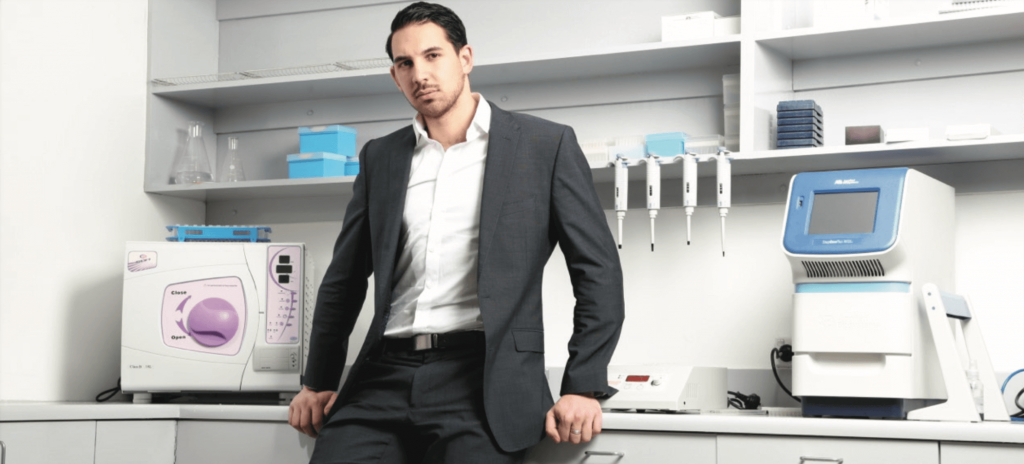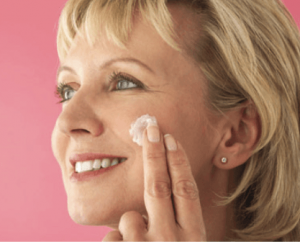Is This The Cure For Wrinkles?
Oct 5, 2018 Posted by admin All Media, Beauty 0 thoughts on “Is This The Cure For Wrinkles?”Sydney Morning Herald – 2014
Anyone who watches regular television would be hard-pressed to avoid cosmetic company ads claiming to unlock the secret to eternal youth.
These advertisers are highly adept to preying on people’s insecurities about ageing, yet in the main there is little scientific basis for their claims.
In June L’Oreal USA was forced to settle charges of deceptive advertising about its Lancome Genifique and L’Oreal Paris Youth Code skincare products. According to the US Federal Trade Commission’s complaint, L’Oreal products falsely claimed to be providing anti-ageing benefits by targeting users’ genes.
In and among all this an Aussie firm has been paving the way towards understanding how genes can be understood to improve skin care. Specialising in collecting a person’s individual genetic fingerprint, SkinDNA claims it is leading the world in analysing skin ageing and other skin problems.
The company says it can analyse a particular person’s susceptibility to sun damage and propensity to wrinkling, putting a scientific perspective on what has long been an entirely subjective beauty application.

Founder Stefan Mazy, 27, began work at the tender age of 19 in a cosmetic clinic. It’s probably the only glass ceiling for a male, he says, but it was not his gender which altered his career path, but a glaring gap in the market.
“Nobody were I worked could explain to me why some ingredients were better than others. Why was layering important? For me it was all about the whys. All they said was that the collagen breakdown was all in the genes. So I said, what’s in the genes?”
Mazy’s ardent curiosity led him on a one-man beauty crusade. Convinced Australia was too small, he set up SkinDNA, found the right people to help him to create a test kit and analysis reports and took his concept to America. Through his US distributor he managed to spruik his concept on several television shows including CBS’s The Doctors and Good Morning America. “We’re still waiting for the call from Dr Oz, although we did make it into his magazine,” Mazy laughs.
SkinDNA sells the test kit to distributors, who then sell it down the line to cosmetic clinics and eventually to the end customer. A swab is taken of the saliva in a customer’s mouth which is then sent back to the SkinDNA lab to create an individual skincare profile.
Mazy’s company, of which he owns 70 percent, is highly feted: SkinDNA was a finalist in the 2013 NSW Export Awards, in the healthcare and biotechnology category. The company now has 400 clinics offering his testing kit and analyses across Australia.
Mazy says a typical treatment will usually be ongoing from three to six months, depending on each person’s specific needs and age. The cost of initial testing varies from $299 to $499. Interestingly, he says Aussies tend to suffer more skin damage from their diet than from the sun. “We are a sunburnt country but our problem is glycation – excess sugar.”
Excess sugar will bind to the collagen, causing it to go brittle and develop crevasses. Other problems relate to an excess of a protein known as MMP1 which leads to a decline in the skin’s health and appearance, leading to wrinkles, roughness and sagging.
Mazy has been approached by several big cosmetic companies to acquire his data. SkinDNA has collected more than 15,000 DNA samples from various ethnic groups, all of which would be of interest to cosmetics firms. “Proctor and Gamble have requested our information twice,” Mazy says. “L’Oreal has three brands interested in partnering with us for a total solution package.”
All the same, Mazy realises this kind of intellectual property requires scale to be effectective. “Skincare companies would kill to have it. Imagine – that amount of DNA date of our customers,” Mazy says.
“That’s where the value will be. But it’s not big enough yet. When it is, we will list the company.”

 Imagine having a blue-print of your skin that tells you exactly what products will work specifically for you? Well a simple Aussie invention using a swab test to identify your skin’s DNA in order to create customisable skincare routines/laser treatments programs for your skin is being hailed as the latest holy grail in scientifically combatting premature ageing and predicting genetic skin dispositions. The test has been so effective that it has now received global attention on the top US program, The Doctors which aired in the US on Monday 8th, October and to air in Australia on Ten on later this year.
Imagine having a blue-print of your skin that tells you exactly what products will work specifically for you? Well a simple Aussie invention using a swab test to identify your skin’s DNA in order to create customisable skincare routines/laser treatments programs for your skin is being hailed as the latest holy grail in scientifically combatting premature ageing and predicting genetic skin dispositions. The test has been so effective that it has now received global attention on the top US program, The Doctors which aired in the US on Monday 8th, October and to air in Australia on Ten on later this year. There are 7 major factors that contribute to an increase in the rate at which your skin ages:
There are 7 major factors that contribute to an increase in the rate at which your skin ages: